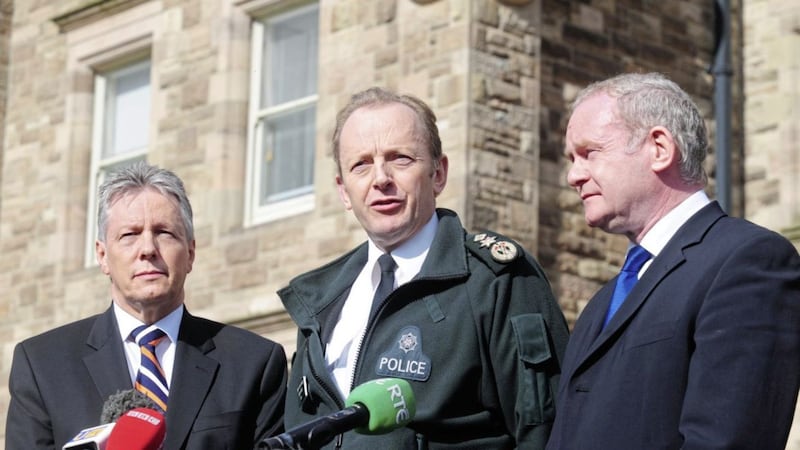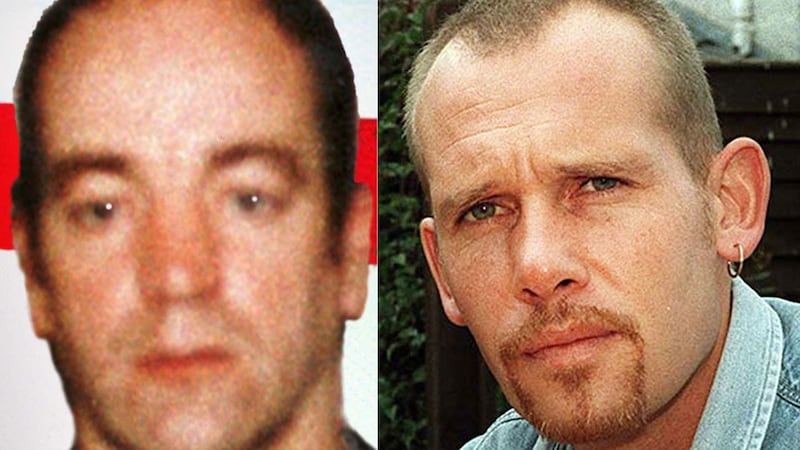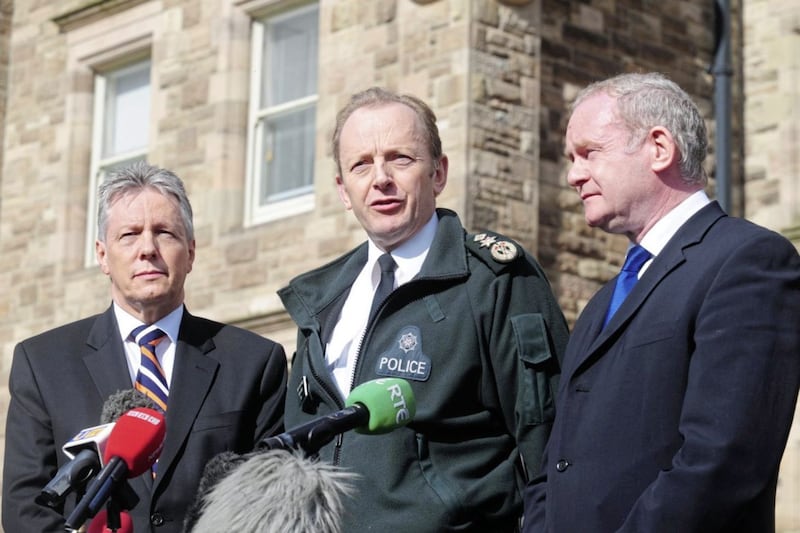FORMER DUP leader Peter Robinson said violence "could have escalated" following the murder of two soldiers and a police officer a decade ago, had it not been for comments by Martin McGuinness calling the dissidents responsible "traitors to the island of Ireland".
Mr Robinson was speaking as friends and family of Mark Quinsey (23) and Patrick Azimkar (21) travel to attend a service in Antrim today to mark 10 years since the English soldiers died in a Real IRA gun attack at Massereene army base.
Two days later, on March 9 2009, Stephen Carroll (48) was shot dead in Craigavon by the Continuity IRA, the first police officer to be murdered since the formation of the PSNI.
Northern Ireland appeared to be on the brink, with loyalist paramiltaries later speaking of mobilising in response to anger within the unionist community.
It was the day after Mr Carroll's murder that Peter Robinson and Martin McGuinness, then first and deputy first ministers, stood either side of Chief Constable Sir Hugh Orde outside Stormont Castle to address the media.
Mr McGuinness said: "These people, they are traitors to the island of Ireland. They have betrayed the political desires, hopes and aspirations of all of the people who live on this island."
Mr Robinson said he had no idea he was going to use such strong language, which shocked many given Mr McGuinness's own republican past.
"I knew he was appalled by the attacks, I didn't know he was going to use those words, nor do I think did his colleagues - it showed just how angry he was by what happened, how angry we all were," he said.
The united stance was held up as an example of leadership in difficult times.
In January 2012, Brian Shivers was convicted of the soldiers' murders, while leading republican Colin Duffy was acquitted. However, a year later Shivers's conviction was overturned on appeal.
Brendan McConville, of Glenholme Avenue in Craigavon, and John Paul Wootton, from Colindale in Lurgan, are serving life sentences for the murder of Stephen Carroll.
Mr Robinson said they knew those responsible wanted to derail the political process and the people of Northern Ireland needed to see a "united political front".
"I think if there hadn't been the comment from Martin at that stage it could have escalated, but it became very clear very quickly that this didn't represent where we were going, it wasn't going to derail the political process, and while there was a lot of anger it was directed at those who carried out those awful acts and who wanted to drag us backwards," he said.
"The appalling attacks purely intended to undermine everything that we were trying to do. Political leadership was essential at that time.
"I think the Churches responded well to those terrible events, from my memory they held a joint service.
"There was a view among some at that time that yes, it was all well and good having power sharing, but wait until the first the test of that, and Massereene was major test for us all."
He added: "While they were different and difficult times, we were working together. It was politically a different set of circumstances, but I do still hope we can get back to that."



